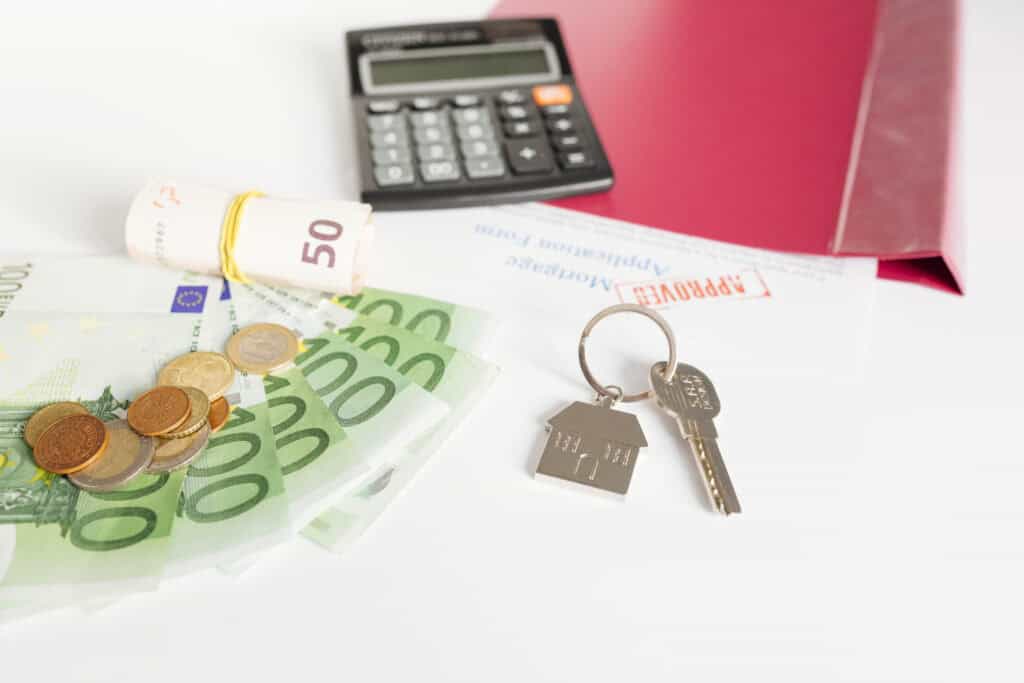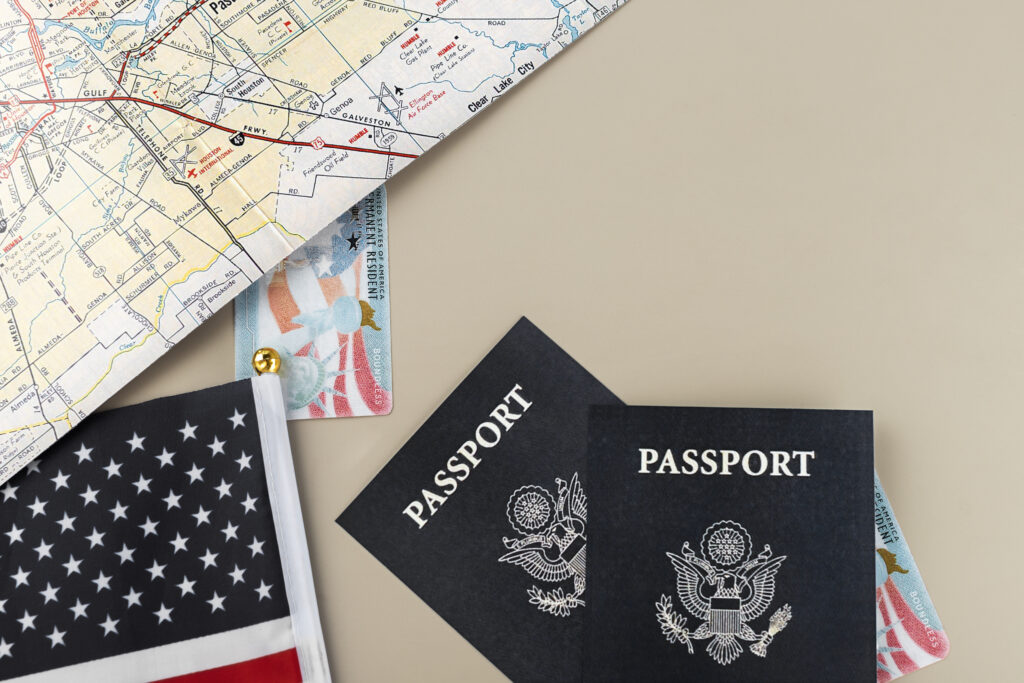Bona Fide Residence Test for Expats
December 28, 2023 | Foreign Earned Income | 5 minute read
Expat Tax Blog. Tax Tips for US Americans abroad.
Updated February 25, 2025
 All blogs are verified by Enrolled Agents and CPAs
All blogs are verified by Enrolled Agents and CPAs
Updated February 25, 2025

Have you heard about the Bona Fide Residence Test for expats? It’s an eligibility factor that helps expats save even more money off their US tax returns every year. The Bona Fide Residence Test goes hand in hand with another test called the Physical Presence Test, too.
Here is everything you need to know about this vital test for expats:
What is the Bona Fide Residence Test?
According to the IRS, expats can use the Bona Fide Residence Test to be eligible for tax exclusions and benefits like:
- The Foreign Earned Income Exclusion
- The Foreign Housing Exclusion and/or
- The Foreign Housing Deduction
More specifically, the Bona Fide Residence Test tells the IRS you’re a true resident of a foreign country because simply moving or living there will not be enough. There is much more to qualify for the Bona Fide Residence Test if you take advantage of certain expat tax benefits.
If you go to a foreign country to work for a specified period of time, you ordinarily will not be regarded as a bona fide resident of that country even though you work there for one tax year or longer. The length of your stay and the nature of your work are only two of the factors to be considered in determining whether you meet the bona fide residence test.
IRS
How to Qualify for the Bona Fide Residence Test
Who is eligible for Bona Fide Residence Test?
- You are a US citizen or US resident alien who is a resident of a country with which the US has an income tax treaty.
- Have an established residence in a foreign country.
- Have/are living within your foreign host country for an entire tax year (January 1-December 31)
- No plans to move back to the US soon
Overall, however, the IRS decides whether you qualify as a Bona Fide Residence Test according to what you report on Form 2555, the Foreign Earned Income Exclusion. Therefore, it’s up to the IRS to determine your eligibility.
Who is Not Eligible?
Additionally, expats can’t be eligible for the Bona Fide Residence Test if the following happens:
- You state to the foreign authorities that you are not a resident of your host country
- The foreign authorities do not make you subject to their country’s taxes, or
- The authorities have not finalized your foreign residency and tax status within the country
Bona Fide Residence Test Examples
Need some practical examples of how the Bona Fide Residence Test works? Check this out:
Example 1:
Jeremy was offered a job at foreign company in Portugal. It is indefinite, which means they don’t know how long they will be working there; however, he decided to move there on October 1, 2023. Jeremy established a home, getting an apartment in Lisbon.
In March 2024, he went back to the States to attend a family funeral, arrived back in Portugal in April, and continued living there. January 1, 2025, marks a completed tax year of residence in the foreign country (January 2024-December 2024), so Jeremy qualifies as a bona fide resident for the 2024 Tax Year.
Example 2:
Taking the Portugal example above – if Jeremy was transferred back to the US on September 10, 2023, he would not qualify for the bona fide residence test because he will move back to the US before the whole tax year. However, Jeremy could be eligible for the physical presence test (see more info below) if he still wanted to use the Foreign Housing Exclusion or Deduction.

FAQ on Bona Fide Residence Test
What if I am working temporarily in a foreign country and intend to return to the US?
If you are a resident, have a home for yourself in a foreign country, and lived there for an entire tax year then you should still qualify – even if intend to return to the US in the future.
Can I take trips to the US and still qualify?
If you meet the criteria for the Bona Fide Residence Test for the entire tax year, you’re free to travel to the US as much as you’d like, provided you maintain a clear intention to return to your host country to fulfill the requirements of the Bona Fide Residence Test. On the other hand, if the Physical Presence Test is your chosen method and you don’t qualify for the Bona Fide Residence Test, it’s important to restrict your travel to the US accordingly.
I am renting out my home in the US – will this affect my eligibility?
As long as you adhere to a Bona Fide Residence (resident of the foreign country, been there in the foreign country for an entire tax year, etc.), you should be fine and still be eligible.
The Foreign Earned Income Exclusion
In our expat guide, we explain how the Foreign Earned Income Exclusion – or FEIE – is a tax benefit for Americans abroad. Specifically, expats can exclude a large amount of foreign earned income from their US tax return.
For tax season 2024 in 2025, expats can exclude up to $126,500 of foreign earned income. However, foreign currency conversion must be made because the IRS only accepts US dollars on a tax return. Don’t worry – our best-selling expat tax software can easily convert foreign income into USD using the correct IRS rate.
Eligibility for the FEIE
To be eligible for the Foreign Earned Income Exclusion, expats need to pass the Bona Fide Residence Test (as explained in this post) or the physical presence test:
- Physical presence test: You were outside the US for 330 full days within a consecutive 12-month period, beginning or ending in the tax year. Also, you may have to prorate the maximum FEIE amount, depending on your qualifying period.
When you are qualified for the FEIE, you can also be eligible for Foreign Housing Deductions and the Foreign Housing Exclusion (see below). These benefits will help with rent, utilities, and repairs against US taxation.
The Foreign Housing Exclusion and Deduction
The Foreign Housing Exclusion allows US citizens abroad to deduct any excess housing expenses paid by the employer over 16% of that year’s Foreign Earned Income Exclusion (FEIE) amount ($126,500 for the 2024 tax season).
Qualified housing expenses over $16,944 might be eligible for US tax exemption. However, there is a limit to how much foreign housing expenses you can deduct.
Save Even More Money with MyExpatTaxes
Here are some other housing exclusions you could benefit from:
- Home utilities
- Personal property insurance
- Accessory rentals
- Household repairs
The Foreign Housing Exclusion does not include furniture purchased online, mortgage payments, or domestic labor (e.g., house cleaners, maids, etc.).
Qualify for the Foreign Housing Exclusion
To qualify, expats will need to pass the Bona Fide Residence Test or the Physical Presence Test. Once you are eligible for this benefit, you can fill out Form 2555, which can be found in MyExpatTaxes software. This will inform the IRS of the test you qualify for to receive the exclusion.
Foreign Housing Deductions
Some foreign housing deduction facts to consider as an American living abroad:
- The housing deduction only impacts amounts paid for people with self-employment earnings.
- Once you choose to exclude foreign housing expenses, you cannot take a foreign tax deduction on excluded income taxes. If you try and bring a deduction, the IRS could revoke your desire to exclude housing expenses.
- The foreign housing deduction cannot reduce self-employment taxes.
Learn more about Foreign Housing Exclusions and Deduction on the IRS website.
US Expat Tax Facts
You are currently viewing a placeholder content from YouTube. To access the actual content, click the button below. Please note that doing so will share data with third-party providers.
More InformationUS Americans and Green Card Holders must report their worldwide earnings to the IRS every year if they reach the tax filing threshold. Plus, if you have over $10,000 total from all foreign financial accounts at any one time during the year, you need to file the Foreign Bank Account Report – known as the FBAR.
Even though you may have to file US taxes, you probably don’t have to pay them. Why? The US has made several agreements with countries all around the world that prevent expats from double taxation. These agreements are called Totalization Agreements and allows you to save on US taxation while still being compliant.
Need More Help with Expat Taxes?
If you’re seeking more clarity on the Bona Fide Residence Test for expats, our friendly and expert human tax team is here to assist with any questions you may have. Otherwise, embark on your journey to full tax compliance with a smile on your face by using MyExpatTaxes award-winning, user-friendly software!

Written by Nathalie Goldstein, EA
Nathalie Goldstein, EA is a leading expert on US taxes for Americans living abroad and CEO and Co-Founder of MyExpatTaxes. She contributes to Forbes and has been featured in Forbes, CNBC and Yahoo Finance discussing US expat tax.
December 28, 2023 | Foreign Earned Income | 5 minute read











